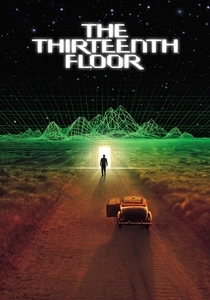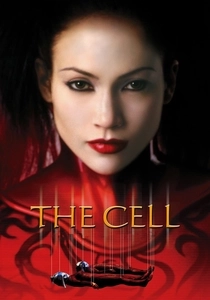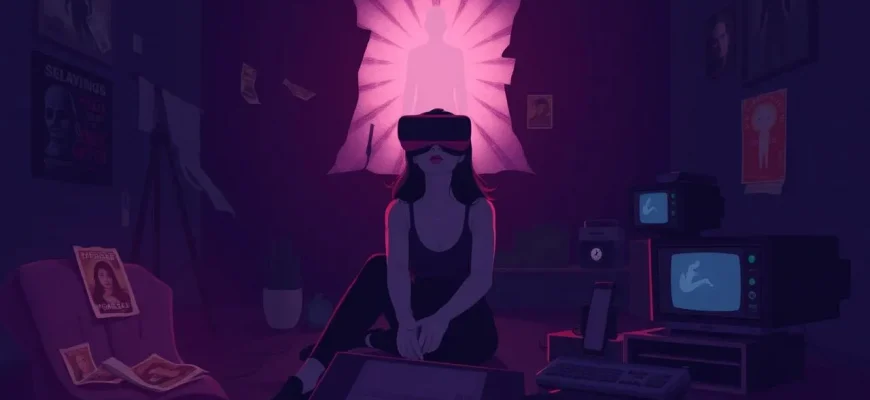Virtual reality has opened up new avenues for storytelling, especially in the horror genre, where the line between reality and fiction blurs to create chilling experiences. This curated list of 10 horror films delves into the eerie possibilities of virtual reality, offering a spine-chilling journey through digital nightmares. From mind-bending psychological thrillers to visceral, gory tales, these movies not only entertain but also provoke thought about our reliance on technology and the potential consequences of its misuse.

The Lawnmower Man (1992)
Description: This film explores the dark side of VR when a mentally challenged gardener is subjected to experimental VR treatments, leading to his transformation into a superhuman with dangerous intentions.
Fact: The film was inspired by Stephen King's short story but deviates significantly from the original plot. It was one of the first movies to explore VR as a central theme.
 Watch Now
Watch Now 
Brainscan (1994)
Description: A horror film where a teenager gets more than he bargained for when he plays a new VR game that turns deadly, blurring the lines between the game and reality.
Fact: The film features a cameo by the rock band T. Rex, with their song "20th Century Boy" playing during a key scene.
 Watch Now
Watch Now 
Virtuosity (1995)
Description: A virtual reality simulation of a serial killer escapes into the real world, leading to a high-stakes chase to stop him before he wreaks havoc.
Fact: The film was one of the first to explore the concept of AI becoming sentient within a VR environment.
 Watch Now
Watch Now 
The Matrix (1999)
Description: Although more sci-fi than horror, the concept of living in a simulated reality where one's mind is trapped in a virtual world is central to the film's horror elements.
Fact: The film's directors, the Wachowskis, were influenced by anime, cyberpunk literature, and philosophical concepts like Plato's Allegory of the Cave.
 Watch Now
Watch Now 
The Thirteenth Floor (1999)
Description: A scientist discovers that his reality might be a simulation, leading to a thrilling exploration of virtual worlds within worlds.
Fact: The film is loosely based on the novel "Simulacron-3" by Daniel F. Galouye, which also inspired the German TV movie "World on a Wire."
 Watch Now
Watch Now 
The Cell (2000)
Description: A psychologist enters the mind of a comatose serial killer through a VR-like technology to find his latest victim, encountering surreal and terrifying landscapes.
Fact: The film's visual style was heavily influenced by the works of surrealist artists like Salvador Dalí.
 Watch Now
Watch Now 
Gamer (2009)
Description: In a dystopian future, players control human prisoners in a VR game, but when one player starts to question the ethics, the game turns deadly.
Fact: The film explores themes of free will, control, and the ethics of virtual reality entertainment.
 Watch Now
Watch Now 
Strange Days (1995)
Description: While not strictly VR, this film features a technology that records and plays back experiences, leading to a thrilling narrative about memory, identity, and reality.
Fact: The film was written by James Cameron and Kathryn Bigelow, with Bigelow directing, showcasing their interest in futuristic technology.
 30 Days Free
30 Days Free 
eXistenZ (1999)
Description: David Cronenberg's film blurs the lines between reality and virtual reality, where game designers and players get lost in a game that might be controlling their real lives.
Fact: The film's title is a play on the word "existence," reflecting the theme of the blurring between reality and virtual reality.
 30 Days Free
30 Days Free 
Open Your Eyes (1997)
Description: This Spanish film, later remade as "Vanilla Sky," deals with themes of virtual reality and the manipulation of reality, leading to a mind-bending conclusion.
Fact: The film was remade in Hollywood with Tom Cruise, but the original Spanish version is often praised for its subtlety and depth.
 30 Days Free
30 Days Free 








